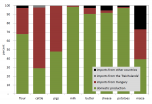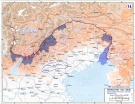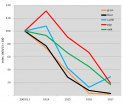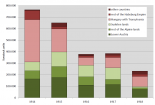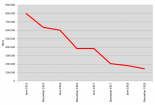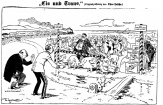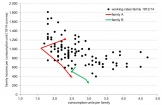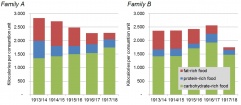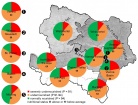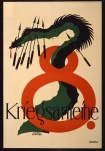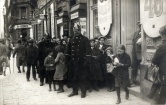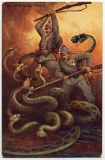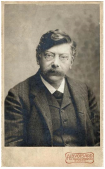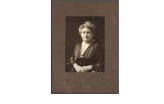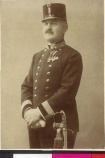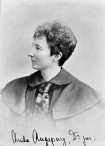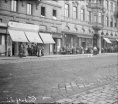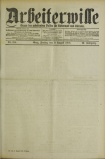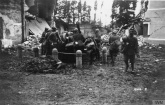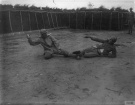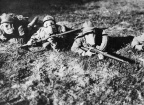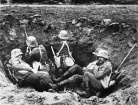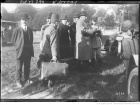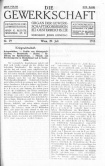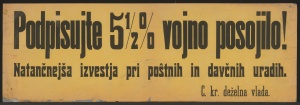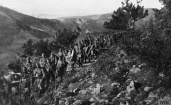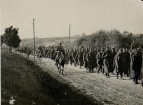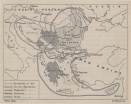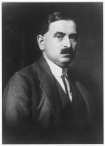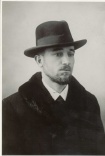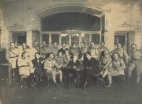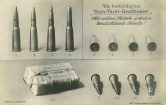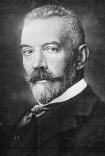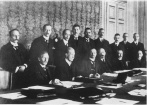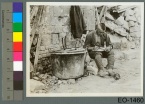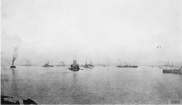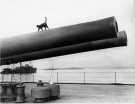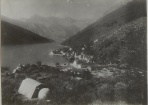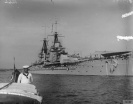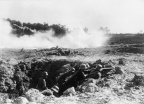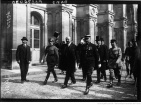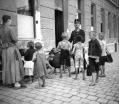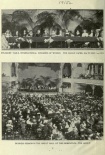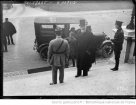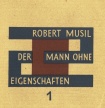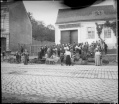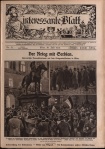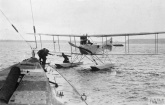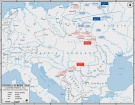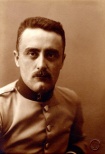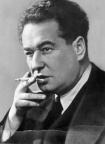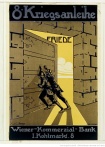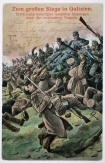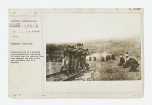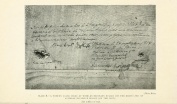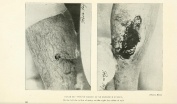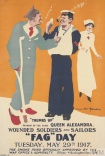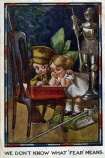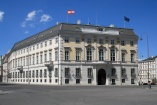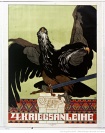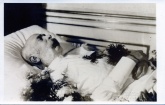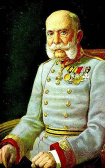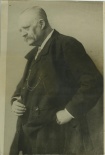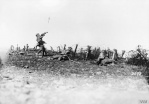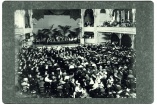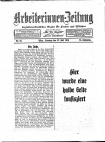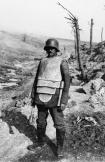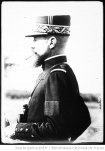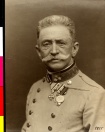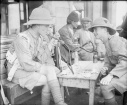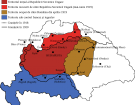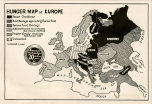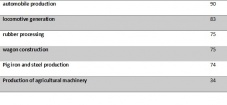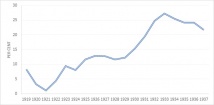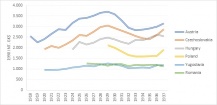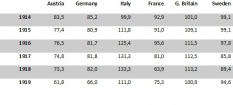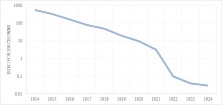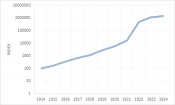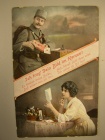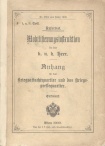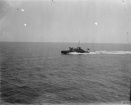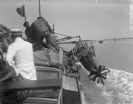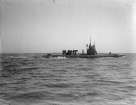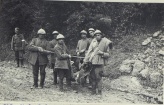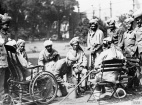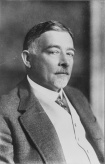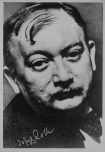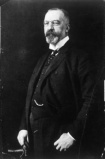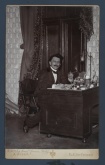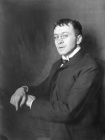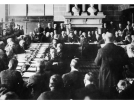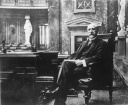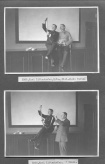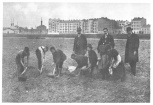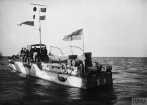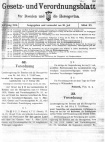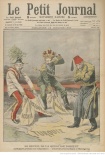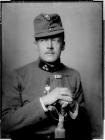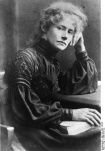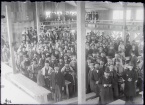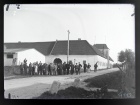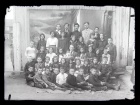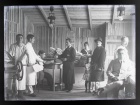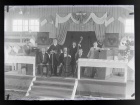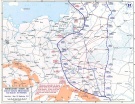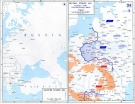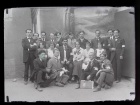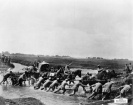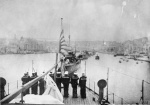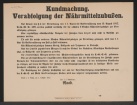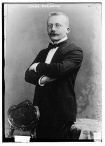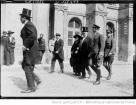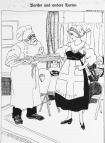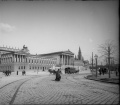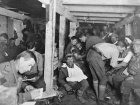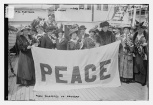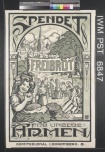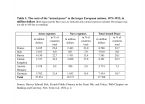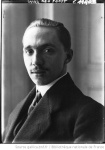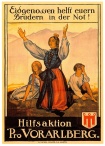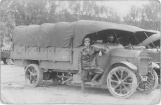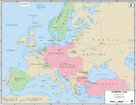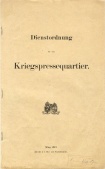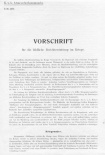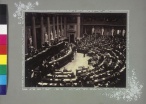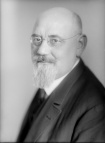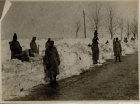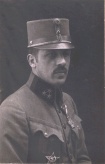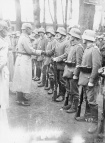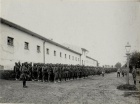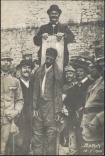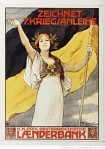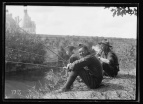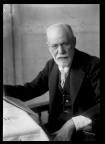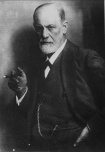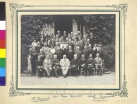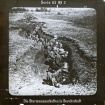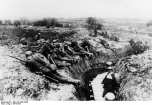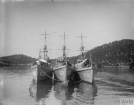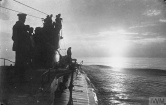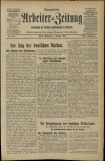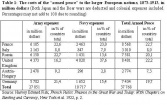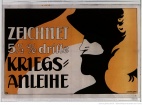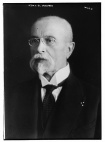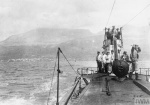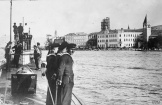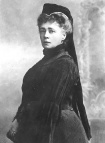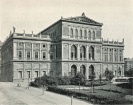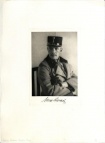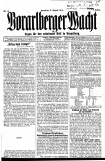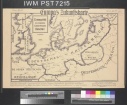Regions Austria
Survey Articles (Regional)
Regional Thematic Articles
- Between Acceptance and Refusal - Soldiers' Attitudes Towards War (Austria-Hungary)
- Food and Nutrition (Austria-Hungary)
- Governments, Parliaments and Parties (Austria)
- Historiography 1918-Today (Austria-Hungary)
- Labour, Labour Movements, Trade Unions and Strikes (Austria-Hungary)
- Literature (Austria-Hungary)
- Occupation during and after the War (Austria-Hungary)
- Organization of War Economies (Austria-Hungary)
- Post-war Economies (Austria-Hungary)
- Press/Journalism (Austria-Hungary)
- Pre-war Military Planning (Austria-Hungary)
- Prisoners of War (Austria-Hungary)
- Revolutions (Austria-Hungary)
- Social Conflict and Control, Protest and Repression (Austria-Hungary)
- War Aims and War Aims Discussions (Austria-Hungary)
- War Finance (Austria-Hungary)
- War Losses (Austria-Hungary)
Encyclopedic Entries
- Adler, Victor
- Austro-Hungarian Enemy Aliens (USA)
- Automobile Industry (Austria-Hungary)
- Ballhausplatz
- Bauer, Otto
- Berchtold, Leopold Graf
- Cattaro, Mutiny of
- Centenary (Austria)
- Charles I, Emperor of Austria
- Concept of Mitteleuropa
- Conrad von Hötzendorf, Franz Xaver Josef Graf
- Czernin, Ottokar Graf
- Expanding Bullets
- Fear
- Feminist Pacifism
- Francis Joseph I, Emperor of Austria
- Franz Ferdinand, Archduke of Austria-Este
- Freud, Sigmund
- Germany's Blank Cheque to Austria-Hungary
- Kraus, Karl
- Markl Internment Camp
- Mediterranean Theater, Naval Operations
- Musil, Robert
- Prochaska Affair
- Redl, Alfred
- Renner, Karl
- Roth, Joseph
- Ruggera, Camillo
- Saint-Germain, Treaty of
- Sanjak of Novi Pazar
- Sarkotić von Lovćen, Stephan Freiherr
- Schalek, Alice
- Sixtus Affair
- Smoking and Cigarette Consumption
- Stormtrooper
- Stürgkh, Karl Graf
- Suttner, Bertha von
- The Last Days of Mankind (play)
- The Man without Qualities (novel)
- Trialism
- Trianon, Treaty of
- Viribus Unitis, SMS
- Vorarlberg Referendum
- War Archives (Austria-Hungary)
- War Press Office (Austria-Hungary)
- War Requirement Acts
- War Surveillance Office (Austria-Hungary)
- Wiener Philharmoniker (Vienna Philharmonic Orchestra)
See also
- Antisemitism
- Atrocities
- Bereavement and Mourning
- Caricatures
- Centenary (Internet)
- Centenary (Libraries)
- Centenary (Museums)
- Civilian and Military Power
- Commemoration, Cult of the Fallen
- Controversy: The Media's Responsibility for Crises and Conflicts in the Age of Imperialism
- Literature
- Media Discourse after the War
- Medicine and Medical Service
- Moral Norms and Values
- Pacifism
- Post-war Welfare Policies
- Propaganda at Home and Abroad
- Staging War. Theatre 1914-1918
- The Churches
- The Military Collapse of the Central Powers
- Women War Reporters
Survey Articles (Regional)
-
The article surveys the social and military history of Austria-Hungary during the First World War. The war brought a harsh military dictatorship along with innovations in economy, labor deployment, … READ MORE
Regional
Regional Thematic Articles
-
Since the end of World War One it has generally been accepted that the collapse of the Habsburg Monarchy was primarily caused by friction among its ethnic groups. It has furthermore been alleged that … READ MORE
Regional Thematic -
Food became a scarce – and thus decisive – resource for the Habsburg Empire’s warfare. Agricultural production in Austria-Hungary dramatically deteriorated due to causes more or less related to … READ MORE
Regional Thematic -
The closing of the parliament in Vienna in spring 1914 led to the consolidation of a wartime regime that was at once autocratic, decentralized, and poorly equipped to handle the demands of competing … READ MORE
Regional Thematic -
Apart from a few brief words regarding the relevant scientific work of international scholars, this article focuses primarily on Austrian World War I historiography from 1918 to the present. Hence, … READ MORE
Regional Thematic -
The First World War was a period of repression and severe privation in Austria-Hungary. The organized labor movement was heavily constrained and its leaders resorted to a strategy of compliance with … READ MORE
Regional Thematic -
This article considers the links between Austrian literature and the First World War, particularly reactions to the war within the genres of poetry, narrative prose, drama and journalism. It will … READ MORE
Regional Thematic -
While on the Western Front there were only limited territorial movements, the Eastern Front and warfare in southeastern Europe, including parts of Italy, had all the characteristics of mobile … READ MORE
Regional Thematic -
This article describes the structure and development of the Austro-Hungarian war economy during World War I. It explains the dynamic process that took place within Austria-Hungary’s economy during … READ MORE
Regional Thematic -
The Austrian economy went through several phases in the interwar period, beginning with general post-war misery and massive currency devaluation. This article focuses on the immediate post-war period … READ MORE
Regional Thematic -
The undisputed superiority of the Western Powers, above all Great Britain in the domain of propaganda together with the collapse of Austria-Hungary suggest that the Hapsburg monarchy was militarily … READ MORE
Regional Thematic -
Austria-Hungary’s General Staff enjoyed a monopoly on war planning. Its long-time Chief Franz Conrad von Hötzendorf worked hard to improve the Habsburg Monarchy’s war preparations and the basic … READ MORE
Regional Thematic -
The following article offers an overview of the central fields of research concerning Prisoners of war (POWs) in the Habsburg Empire during World War One, including living conditions in war camps, … READ MORE
Regional Thematic -
The following pages - focusing on the collapse of the Habsburg Empire and the incidents in Austria in 1918/20 - are subdivided into four different periods and aspects: Firstly, World War One until … READ MORE
Regional Thematic -
Social Conflict and Control, Protest and Repression (Austria-Hungary)
By Maureen Healy, Dana Bronson and Musa Jemal
This essay traces the experience on the plural home fronts of the Habsburg Empire. With a primary focus on the imperial city, Vienna, it also offers glimpses into the conditions in Hungary and the … READ MORE
Regional Thematic -
In July 1914 the Habsburg monarchy went to war with Serbia declaring it sought no territorial gain from the struggle. Soon discussions of possible territorial acquisitions, along with economic and … READ MORE
Regional Thematic -
The article presents a new estimate of the war costs and an overview of war finances in Austria and Hungary. Both countries of the Austro-Hungarian Monarchy were unprepared to meet growing war … READ MORE
Regional Thematic -
Estimates of the total losses of the Austro-Hungarian armed forces range from 1.1 to 1.2 million in addition to 450,000 deceased prisoners of war and 300,000 soldiers who stayed missed after war. The … READ MORE
Regional Thematic
Encyclopedic Entries
-
Until his death in 1918, Victor Adler was the most prominent Austrian socialist leader and among the leading personalities of the Second Socialist International. During the war, he aimed to preserve … READ MORE
Entry -
Austrian and Hungarian citizens working in war-related industries were exempt from many restrictions on enemy aliens, but many labor leaders and intellectuals were arrested and interned, often … READ MORE
Entry -
The Austro-Hungarian automotive industry and the necessary equipment for military vehicles developed very slowly in comparison to other European states. During the First World War, the army had to … READ MORE
Entry -
The Imperial and Royal Ministry of the Imperial and Royal House and of Foreign Affairs, informally called “Ballhausplatz” after the Viennese square on which the central office was located, was … READ MORE
Entry -
Otto Bauer was a leading Austro-Marxist and socialist politician who served during the war as an officer in the Austro-Hungarian army. After returning from Russian internment to Vienna in 1917, he … READ MORE
Entry -
Graf Leopold Berchtold, Habsburg foreign minister from 1912 to 1915, was confronted with military action during and after the Balkan Wars, yet kept peace. Then, the Sarajevo assassinations, blamed on … READ MORE
Entry -
The mutiny of the sailors on Cattaro, the Austrian-Hungarian Navy Base, occurred on 1 February 1918. The incident ended with the mutineers surrendering. Even if the revolt did not significantly … READ MORE
Entry -
In his youth, the archduke was introduced to the idea of federalism by Archduke Franz Ferdinand. During the first part of World War I, he became a skillful military leader without any political … READ MORE
Entry -
Friedrich Naumann’s ''Mitteleuropa'' (1915) was a liberal voice in the largely illiberal German discussion on the future of East Central and South East Europe. His reasoning, based on principles of … READ MORE
Entry -
Franz Conrad von Hötzendorf was an Austrian officer and Chief of the General Staff of the Austro-Hungarian Army from 1906 to 1911 and from 1912 to … READ MORE
Entry -
Ottokar Graf Czernin was an Austrian politician and the minister of foreign affairs for Austria-Hungary from 1916 to … READ MORE
Entry -
During the First World War both sides accused each other of employing illegal small arms ammunition – either expanding or explosive bullets. The Hague Conventions of 1899 and 1907 outlawed … READ MORE
Entry -
Fear
By Jan Plamper
Of the two world wars, the First World War was special in that fear figured prominently in a number of domains, including military tactics, psychiatry, and first-person sources. Fear was to be … READ MORE
Entry -
A minority section of the women’s movements opposed World War I and organized the International Congress of Women at The Hague in April 1915. Its participants demanded women’s rights and more … READ MORE
Entry -
Under the terms of the 1867 constitution, Francis Joseph retained his prerogatives in foreign policy. His decision to opt for war in 1914 was largely a result of the frustrations of Austria’s … READ MORE
Entry -
This biographical overview of Archduke Franz Ferdinand examines the evolution of his difficult personality through the traumatic experiences of barely surviving tuberculosis and fighting for the … READ MORE
Entry -
Sigmund Freud, the founding father of psychoanalysis, expressed a war-weariness and disappointment with the barbarity of the war that, after the final dissolution of the Habsburg Empire, gave way to … READ MORE
Entry -
Germany’s offer of unconditional support to its Austro-Hungarian ally in July 1914 remains one of the most controversial decisions in modern history. Historians have interpreted the blank cheque in … READ MORE
Entry -
Karl Kraus was one of the 20th century’s most significant satirists. While his primary target was the Austrian press, his satire took aim at nationalism, parochialism, unrestrained … READ MORE
Entry -
During the years 1915 to 1918 in the internment camp in Markl (Windigsteig), in Lower Austria, up to 1,400 mostly Jewish persons of Russian-Polish and Russian origin were incarcerated. They already … READ MORE
Entry -
The real naval war in the Mediterranean turned out to be a struggle against German and Austrian submarines and not a classic battle between major … READ MORE
Entry -
The Austrian writer Robert Musil served as a soldier throughout the entire period of the war, first for border security in South Tyrol/Trentino, later on the Italian Front (“Mountain war”), and … READ MORE
Entry -
The Prochaska Affair was a diplomatic dispute between Austria-Hungary and Serbia, ostensibly concerning the fate of the Austro-Hungarian consul in Prizren. However, it carried deeper implications for … READ MORE
Entry -
On 25 May 1913 Colonel Alfred Redl, the former head of Austria-Hungary’s military espionage, committed suicide in Vienna. As it turned out, Redl had betrayed Austria-Hungary’s spy-network in … READ MORE
Entry -
Karl Renner quickly became one of the main theoreticians of a policy of support for the war effort. He saw World War I as a chance for social democratic advance, with state intervention laying the … READ MORE
Entry -
Joseph Roth was a Jewish writer and journalist. His experiences at the Eastern Front in Galicia in 1916–1917 and the demise of the Austro-Hungarian Monarchy after the war had a lasting impact on … READ MORE
Entry -
Camillo Ruggera was an officer of the General Staff in the Austro-Hungarian army. Assigned to the Supreme Command, on 29 October 1918 he was commissioned to make contact with the leaders of the … READ MORE
Entry -
The Treaty of Saint-Germain was signed by Austria and twenty-seven Allied and associated countries in the ''Château Neuf'' in Saint-Germain-en-Laye, southwest of Paris, on 10 September 1919. It … READ MORE
Entry -
Although ''sanjak'' usually means any one of many Ottoman administrative units, one has become known as “the Sanjak.” Following the Treaty of Berlin the Sanjak of Novi Pazar became the symbol of … READ MORE
Entry -
Stephan Baron von Sarkotić was an Austro-Hungarian general who had already made his mark as a political officer prior to the outbreak of World War I. During the war, he formulated different … READ MORE
Entry -
This article deals with the activities of journalist and photographer Alice Schalek as war correspondent during the Great War. Between 1915 and 1917 Schalek reported from the South Tyrolean, Isonzo … READ MORE
Entry -
The Sixtus Affair was the failed attempt by Emperor Charles I. of Austria and his bother-in-law Prince Sixtus of Bourbon-Parma to conclude a compromise peace with the members of the Entente-Powers … READ MORE
Entry -
During the First World War, governments, civilians and soldiers alike prized smoking for its morale-boosting qualities, in addition to a medicinal effect following combat and periods of intense … READ MORE
Entry -
Storm troopers were soldiers in specialized assault units, which emerged in the German army during the First World … READ MORE
Entry -
Karl Graf von Stürgkh was an Austrian member of the Imperial Council, Minister for Education, and Minister President of Cisleithania from 3 November 1911 until his assassination on 21 October 1916 … READ MORE
Entry -
Bertha von Suttner (1843-1914) was awarded the Nobel Peace Prize in 1905. She wrote an internationally acclaimed antiwar novel ''Die Waffen nieder!'' (''Lay Down Your Arms!'') and co-founded the … READ MORE
Entry -
The Last Days of Mankind (''Die letzten Tage der Menschheit'') is the major work by Vienna’s most prolific satirist, Karl Kraus. Published in full in 1922, the drama ridicules the interconnected … READ MORE
Entry -
''Der Mann ohne Eigenschaften'' (''The Man without Qualities'') is a novel by Robert Musil, begun in 1918. The first book was published in 1931, and the first part of the second book was published in … READ MORE
Entry -
Before and at the beginning of World War I, various proposals concerning the creation of a third part of the Austro-Hungarian Monarchy were brought up for discussion. Each of the aspiring groups … READ MORE
Entry -
The Treaty of Trianon is one of the Paris peace treaties that ended the First World War. It was concluded between Hungary and the Allied and Associated Powers on 4 June 1920 in the Grand Trianon … READ MORE
Entry -
The Austro-Hungarian battleship ''Viribus Unitis'' was commissioned in reaction to the newly built Italian dreadnought, ''Dante Alighieri''. The ''Viribus Unitis'' was the first Austro-Hungarian ship … READ MORE
Entry -
The latter Austrian ''Land'' Vorarlberg saw the rise of a grass root movement for a political union with Switzerland between autumn 1918 and spring 1919. These ideas never materialized, however, as … READ MORE
Entry -
The War Archives (''Kriegsarchiv''), centre of the official historiography of the Imperial and Royal Army in the pre-war period, changed, during the First World War, into a repository for recent war … READ MORE
Entry -
The War Press Office, or ''Kriegspressequartier'' (KPQ) was the central propaganda institution of the Austro-Hungarian armed forces during World War I. Initially, the KPQ co-ordinated only print … READ MORE
Entry -
The War Requirements Acts were passed in Austria-Hungary in 1912. They placed military requisitions under parliamentary control and helped the army to obtain the most needed products and services … READ MORE
Entry -
During the First World War, Austria-Hungary implemented a state of emergency with several emergency laws overseen by the ''kaiserlich und königlich ''(''k.u.k.'') ''Kriegsüberwachungsamt'' (war … READ MORE
Entry -
The Vienna Philharmonic, a music institution typical of the high bourgeoisie before the First World War, played patriotic music in many charity concerts during the conflict and was sent to neutral … READ MORE
Entry
See also
-
The First World War and its direct repercussions in the postwar period (revolution, counterrevolution, the founding of republics, and the Paris peace treaties) mark a profound caesura not only in the … READ MORE
Thematic -
The term "atrocity" describes an act of violence condemned by contemporaries as a breach of morality or the laws of war. "Atrocities" are culturally constructed; by 1914, an international discourse … READ MORE
Thematic -
In the modern era, new forms of mourning and meaning-making for fallen soldiers emerged. The human losses of the First World War were largely mourned, honoured and remembered within … READ MORE
Thematic -
This article presents cartoonists as patriotic propagandists mobilizing their pens and brushes for the national cause during the war. It analyses their techniques for arousing emotions such as … READ MORE
Thematic -
The centenary events surrounding the First World War have produced a significant amount of digital content in various forms, and thus has set a precedent for how large scale post-war memorisation can … READ MORE
Thematic -
Libraries (local, specialist, and national) contributed in numerous and important ways to commemorative activities during the centenary of the First World War. These included making use of their … READ MORE
Thematic -
This article discusses how European museums – in particular, national war museums – dealt with the centenary of World War I. These museums still tend to tell the story of World War I from a … READ MORE
Thematic -
By 1914 the leading states had succumbed to varying degrees of militarism, subordinating other interests to those of the armed forces, yet all were governed by regimes in which the ultimate authority … READ MORE
Thematic -
The First World War ushered in an unprecedented wave of commemorations. Mass death elicited a construction spree in memorial objects and sites across all countries and territories involved in the … READ MORE
Thematic -
Controversy: The Media's Responsibility for Crises and Conflicts in the Age of Imperialism
By Peter Geiss
The article discusses the role of the media in the complex international process leading to the First World War with a focus on the press of the great powers. Recent research has shown that the … READ MORE
Thematic -
This article seeks to present an overview of First World War literature across many of the combatant nations from the outbreak of the conflict up to the beginning of the Second World War. Taking a … READ MORE
Thematic -
The discourse about the Great War during the interwar period was shaped by numerous factors. The emergence of new media facilitated the use of new forms of expression and profoundly changed the … READ MORE
Thematic -
It is impossible to talk about “the” medical care or “the” medical service of World War I. Medical care varied greatly, depending on geography, strategy, and national, social, or economic … READ MORE
Thematic -
Change and continuity marked belligerent societies’ norms and values during the First World War. Normative institutions such as marriage and the family proved basically resilient but … READ MORE
Thematic -
The idea of peace in total war may seem irrelevant, but pacifism, or peace activism, did exist during the First World War. A seemingly robust European peace movement existed before 1914, but it … READ MORE
Thematic -
The Great War gave new impulses to the further development of public welfare systems which had emerged in previous decades. The desire for the social protection of the population and the restoration … READ MORE
Thematic -
This article summarizes and compares the principal arguments and strategies of propaganda at the home front, the military front, as well as in neutral and enemy countries. These included the … READ MORE
Thematic -
From 1914 to 1918, theatres in all major European cities staged plays – comedies, operettas, revues, classical and modern dramas, music hall shows or sensational plays – day after day. The lively … READ MORE
Thematic -
Reflecting current historiography, this article focuses primarily on Christian churches centered in the main European theater of the Great War, including more global interactions with the other … READ MORE
Thematic -
October 1918 witnessed the collapse of the German and Austro-Hungarian armies, both greatly affected by war-weariness and starvation. The Austro-Hungarian monarchy lost any remaining loyalty from its … READ MORE
Thematic -
Female war reporters from belligerent and neutral countries were present in the major war theatres in Europe and the Middle East throughout 1914 to 1918. While admission of journalists to the war … READ MORE
Thematic
Survey Articles (Regional)
-
The article surveys the social and military history of Austria-Hungary during the First World War. The war brought a harsh military dictatorship along with innovations in economy, labor deployment, … READ MORE
Regional
Regional Thematic Articles
-
Since the end of World War One it has generally been accepted that the collapse of the Habsburg Monarchy was primarily caused by friction among its ethnic groups. It has furthermore been alleged that … READ MORE
Regional Thematic -
Food became a scarce – and thus decisive – resource for the Habsburg Empire’s warfare. Agricultural production in Austria-Hungary dramatically deteriorated due to causes more or less related to … READ MORE
Regional Thematic -
The closing of the parliament in Vienna in spring 1914 led to the consolidation of a wartime regime that was at once autocratic, decentralized, and poorly equipped to handle the demands of competing … READ MORE
Regional Thematic -
Apart from a few brief words regarding the relevant scientific work of international scholars, this article focuses primarily on Austrian World War I historiography from 1918 to the present. Hence, … READ MORE
Regional Thematic -
The First World War was a period of repression and severe privation in Austria-Hungary. The organized labor movement was heavily constrained and its leaders resorted to a strategy of compliance with … READ MORE
Regional Thematic -
This article considers the links between Austrian literature and the First World War, particularly reactions to the war within the genres of poetry, narrative prose, drama and journalism. It will … READ MORE
Regional Thematic -
While on the Western Front there were only limited territorial movements, the Eastern Front and warfare in southeastern Europe, including parts of Italy, had all the characteristics of mobile … READ MORE
Regional Thematic -
This article describes the structure and development of the Austro-Hungarian war economy during World War I. It explains the dynamic process that took place within Austria-Hungary’s economy during … READ MORE
Regional Thematic -
The Austrian economy went through several phases in the interwar period, beginning with general post-war misery and massive currency devaluation. This article focuses on the immediate post-war period … READ MORE
Regional Thematic -
The undisputed superiority of the Western Powers, above all Great Britain in the domain of propaganda together with the collapse of Austria-Hungary suggest that the Hapsburg monarchy was militarily … READ MORE
Regional Thematic -
Austria-Hungary’s General Staff enjoyed a monopoly on war planning. Its long-time Chief Franz Conrad von Hötzendorf worked hard to improve the Habsburg Monarchy’s war preparations and the basic … READ MORE
Regional Thematic -
The following article offers an overview of the central fields of research concerning Prisoners of war (POWs) in the Habsburg Empire during World War One, including living conditions in war camps, … READ MORE
Regional Thematic -
The following pages - focusing on the collapse of the Habsburg Empire and the incidents in Austria in 1918/20 - are subdivided into four different periods and aspects: Firstly, World War One until … READ MORE
Regional Thematic -
Social Conflict and Control, Protest and Repression (Austria-Hungary)
By Maureen Healy, Dana Bronson and Musa Jemal
This essay traces the experience on the plural home fronts of the Habsburg Empire. With a primary focus on the imperial city, Vienna, it also offers glimpses into the conditions in Hungary and the … READ MORE
Regional Thematic -
In July 1914 the Habsburg monarchy went to war with Serbia declaring it sought no territorial gain from the struggle. Soon discussions of possible territorial acquisitions, along with economic and … READ MORE
Regional Thematic -
The article presents a new estimate of the war costs and an overview of war finances in Austria and Hungary. Both countries of the Austro-Hungarian Monarchy were unprepared to meet growing war … READ MORE
Regional Thematic -
Estimates of the total losses of the Austro-Hungarian armed forces range from 1.1 to 1.2 million in addition to 450,000 deceased prisoners of war and 300,000 soldiers who stayed missed after war. The … READ MORE
Regional Thematic
Encyclopedic Entries
-
Until his death in 1918, Victor Adler was the most prominent Austrian socialist leader and among the leading personalities of the Second Socialist International. During the war, he aimed to preserve … READ MORE
Entry -
Austrian and Hungarian citizens working in war-related industries were exempt from many restrictions on enemy aliens, but many labor leaders and intellectuals were arrested and interned, often … READ MORE
Entry -
The Austro-Hungarian automotive industry and the necessary equipment for military vehicles developed very slowly in comparison to other European states. During the First World War, the army had to … READ MORE
Entry -
The Imperial and Royal Ministry of the Imperial and Royal House and of Foreign Affairs, informally called “Ballhausplatz” after the Viennese square on which the central office was located, was … READ MORE
Entry -
Otto Bauer was a leading Austro-Marxist and socialist politician who served during the war as an officer in the Austro-Hungarian army. After returning from Russian internment to Vienna in 1917, he … READ MORE
Entry -
Graf Leopold Berchtold, Habsburg foreign minister from 1912 to 1915, was confronted with military action during and after the Balkan Wars, yet kept peace. Then, the Sarajevo assassinations, blamed on … READ MORE
Entry -
The mutiny of the sailors on Cattaro, the Austrian-Hungarian Navy Base, occurred on 1 February 1918. The incident ended with the mutineers surrendering. Even if the revolt did not significantly … READ MORE
Entry -
In his youth, the archduke was introduced to the idea of federalism by Archduke Franz Ferdinand. During the first part of World War I, he became a skillful military leader without any political … READ MORE
Entry -
Friedrich Naumann’s ''Mitteleuropa'' (1915) was a liberal voice in the largely illiberal German discussion on the future of East Central and South East Europe. His reasoning, based on principles of … READ MORE
Entry -
Franz Conrad von Hötzendorf was an Austrian officer and Chief of the General Staff of the Austro-Hungarian Army from 1906 to 1911 and from 1912 to … READ MORE
Entry -
Ottokar Graf Czernin was an Austrian politician and the minister of foreign affairs for Austria-Hungary from 1916 to … READ MORE
Entry -
During the First World War both sides accused each other of employing illegal small arms ammunition – either expanding or explosive bullets. The Hague Conventions of 1899 and 1907 outlawed … READ MORE
Entry -
Fear
By Jan Plamper
Of the two world wars, the First World War was special in that fear figured prominently in a number of domains, including military tactics, psychiatry, and first-person sources. Fear was to be … READ MORE
Entry -
A minority section of the women’s movements opposed World War I and organized the International Congress of Women at The Hague in April 1915. Its participants demanded women’s rights and more … READ MORE
Entry -
Under the terms of the 1867 constitution, Francis Joseph retained his prerogatives in foreign policy. His decision to opt for war in 1914 was largely a result of the frustrations of Austria’s … READ MORE
Entry -
This biographical overview of Archduke Franz Ferdinand examines the evolution of his difficult personality through the traumatic experiences of barely surviving tuberculosis and fighting for the … READ MORE
Entry -
Sigmund Freud, the founding father of psychoanalysis, expressed a war-weariness and disappointment with the barbarity of the war that, after the final dissolution of the Habsburg Empire, gave way to … READ MORE
Entry -
Germany’s offer of unconditional support to its Austro-Hungarian ally in July 1914 remains one of the most controversial decisions in modern history. Historians have interpreted the blank cheque in … READ MORE
Entry -
Karl Kraus was one of the 20th century’s most significant satirists. While his primary target was the Austrian press, his satire took aim at nationalism, parochialism, unrestrained … READ MORE
Entry -
During the years 1915 to 1918 in the internment camp in Markl (Windigsteig), in Lower Austria, up to 1,400 mostly Jewish persons of Russian-Polish and Russian origin were incarcerated. They already … READ MORE
Entry -
The real naval war in the Mediterranean turned out to be a struggle against German and Austrian submarines and not a classic battle between major … READ MORE
Entry -
The Austrian writer Robert Musil served as a soldier throughout the entire period of the war, first for border security in South Tyrol/Trentino, later on the Italian Front (“Mountain war”), and … READ MORE
Entry -
The Prochaska Affair was a diplomatic dispute between Austria-Hungary and Serbia, ostensibly concerning the fate of the Austro-Hungarian consul in Prizren. However, it carried deeper implications for … READ MORE
Entry -
On 25 May 1913 Colonel Alfred Redl, the former head of Austria-Hungary’s military espionage, committed suicide in Vienna. As it turned out, Redl had betrayed Austria-Hungary’s spy-network in … READ MORE
Entry -
Karl Renner quickly became one of the main theoreticians of a policy of support for the war effort. He saw World War I as a chance for social democratic advance, with state intervention laying the … READ MORE
Entry -
Joseph Roth was a Jewish writer and journalist. His experiences at the Eastern Front in Galicia in 1916–1917 and the demise of the Austro-Hungarian Monarchy after the war had a lasting impact on … READ MORE
Entry -
Camillo Ruggera was an officer of the General Staff in the Austro-Hungarian army. Assigned to the Supreme Command, on 29 October 1918 he was commissioned to make contact with the leaders of the … READ MORE
Entry -
The Treaty of Saint-Germain was signed by Austria and twenty-seven Allied and associated countries in the ''Château Neuf'' in Saint-Germain-en-Laye, southwest of Paris, on 10 September 1919. It … READ MORE
Entry -
Although ''sanjak'' usually means any one of many Ottoman administrative units, one has become known as “the Sanjak.” Following the Treaty of Berlin the Sanjak of Novi Pazar became the symbol of … READ MORE
Entry -
Stephan Baron von Sarkotić was an Austro-Hungarian general who had already made his mark as a political officer prior to the outbreak of World War I. During the war, he formulated different … READ MORE
Entry -
This article deals with the activities of journalist and photographer Alice Schalek as war correspondent during the Great War. Between 1915 and 1917 Schalek reported from the South Tyrolean, Isonzo … READ MORE
Entry -
The Sixtus Affair was the failed attempt by Emperor Charles I. of Austria and his bother-in-law Prince Sixtus of Bourbon-Parma to conclude a compromise peace with the members of the Entente-Powers … READ MORE
Entry -
During the First World War, governments, civilians and soldiers alike prized smoking for its morale-boosting qualities, in addition to a medicinal effect following combat and periods of intense … READ MORE
Entry -
Storm troopers were soldiers in specialized assault units, which emerged in the German army during the First World … READ MORE
Entry -
Karl Graf von Stürgkh was an Austrian member of the Imperial Council, Minister for Education, and Minister President of Cisleithania from 3 November 1911 until his assassination on 21 October 1916 … READ MORE
Entry -
Bertha von Suttner (1843-1914) was awarded the Nobel Peace Prize in 1905. She wrote an internationally acclaimed antiwar novel ''Die Waffen nieder!'' (''Lay Down Your Arms!'') and co-founded the … READ MORE
Entry -
The Last Days of Mankind (''Die letzten Tage der Menschheit'') is the major work by Vienna’s most prolific satirist, Karl Kraus. Published in full in 1922, the drama ridicules the interconnected … READ MORE
Entry -
''Der Mann ohne Eigenschaften'' (''The Man without Qualities'') is a novel by Robert Musil, begun in 1918. The first book was published in 1931, and the first part of the second book was published in … READ MORE
Entry -
Before and at the beginning of World War I, various proposals concerning the creation of a third part of the Austro-Hungarian Monarchy were brought up for discussion. Each of the aspiring groups … READ MORE
Entry -
The Treaty of Trianon is one of the Paris peace treaties that ended the First World War. It was concluded between Hungary and the Allied and Associated Powers on 4 June 1920 in the Grand Trianon … READ MORE
Entry -
The Austro-Hungarian battleship ''Viribus Unitis'' was commissioned in reaction to the newly built Italian dreadnought, ''Dante Alighieri''. The ''Viribus Unitis'' was the first Austro-Hungarian ship … READ MORE
Entry -
The latter Austrian ''Land'' Vorarlberg saw the rise of a grass root movement for a political union with Switzerland between autumn 1918 and spring 1919. These ideas never materialized, however, as … READ MORE
Entry -
The War Archives (''Kriegsarchiv''), centre of the official historiography of the Imperial and Royal Army in the pre-war period, changed, during the First World War, into a repository for recent war … READ MORE
Entry -
The War Press Office, or ''Kriegspressequartier'' (KPQ) was the central propaganda institution of the Austro-Hungarian armed forces during World War I. Initially, the KPQ co-ordinated only print … READ MORE
Entry -
The War Requirements Acts were passed in Austria-Hungary in 1912. They placed military requisitions under parliamentary control and helped the army to obtain the most needed products and services … READ MORE
Entry -
During the First World War, Austria-Hungary implemented a state of emergency with several emergency laws overseen by the ''kaiserlich und königlich ''(''k.u.k.'') ''Kriegsüberwachungsamt'' (war … READ MORE
Entry -
The Vienna Philharmonic, a music institution typical of the high bourgeoisie before the First World War, played patriotic music in many charity concerts during the conflict and was sent to neutral … READ MORE
Entry











































































